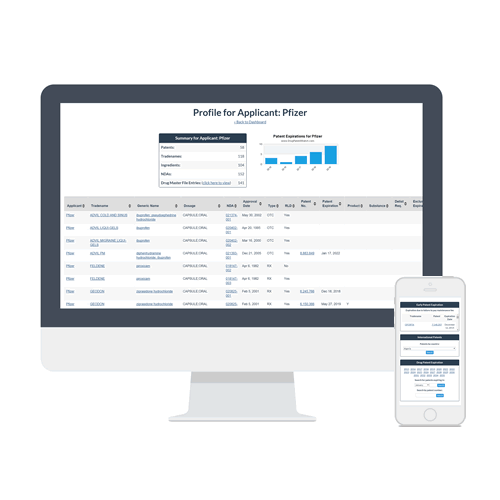
The role of academic research in generic drug development is multifaceted and crucial. Academic research plays a vital role in driving pharmaceutical innovation by fueling scientific discoveries, advancing drug development, and ultimately improving patient outcomes. It serves as the fundamental bedrock for the creation of new medicines and therapies, catalyzing breakthroughs in disease understanding, mechanisms of action, and innovative treatment approaches.
Academic research institutions, such as universities and research centers, serve as vital hubs of scientific knowledge and expertise within the pharmaceutical industry. These institutions promote collaboration among researchers, clinicians, and industry professionals, creating an ecosystem that fosters innovation and facilitates the translation of laboratory findings into practical applications in the field of pharmaceuticals.
Table of Contents
Identifying Drug Candidates
Academic researchers play a significant role in identifying potential drug candidates. Through their expertise and knowledge gained from fundamental research, they can pinpoint promising molecules or therapeutic targets that have the potential to be developed into effective pharmaceutical products. By studying diseases at a molecular level and understanding their underlying mechanisms, researchers can uncover new insights and identify novel approaches for intervention.
Assessing Safety and Efficacy
Once potential drug candidates are identified, academic researchers collaborate with industry partners to assess their safety and efficacy. This involves conducting preclinical studies using appropriate animal models and evaluating the drug’s effectiveness in treating the targeted disease. Through rigorous experimentation and analysis, researchers gather data on dosage, administration route, toxicity, and potential side effects. These findings are crucial in determining whether a drug candidate is safe and effective enough to proceed to the next stages of development.
Early-stage Clinical Trials
Academic researchers also play a crucial role in conducting early-stage clinical trials, which are essential for evaluating the safety and efficacy of a drug candidate in humans. These trials involve a small number of volunteers or patients and aim to gather preliminary data on dosage, potential adverse reactions, and efficacy. By closely monitoring patient outcomes and collecting data, researchers can gain crucial insights into the drug’s performance, refine dosages, and identify any potential safety concerns.
Collaboration with Industry Partners
Throughout the translational research process, academic researchers work closely with industry partners, including pharmaceutical companies, to ensure that the promising findings from basic research are effectively translated into viable pharmaceutical products. This collaboration involves pooling resources, expertise, and funding to accelerate the drug development process. By combining academic knowledge with industry experience, researchers can navigate the complex regulatory landscape and scientific challenges more effectively.
Training Future Scientists and Researchers
Academic research in the field of pharmaceutical innovation plays a crucial role in training the next generation of scientists and researchers. It ensures a continuous influx of skilled individuals into the pharmaceutical industry, equipped with the knowledge and expertise necessary to drive innovation and advance drug development.
Regulatory Science and Research
The FDA’s generic drug science and research efforts help ensure regulatory standards, recommendations, and decisions that impact generic drugs are supported by current scientific insights and research tools. The FDA obtains public input, which helps identify regulatory science and research priorities that can expand and accelerate patient access to generics. The FDA then advances research in those scientific areas and publishes reports describing the corresponding activities and outcomes.
International Collaboration
The FDA collaborates with foreign regulatory authorities to foster the development of uniform, scientifically driven recommendations and guidelines that can help improve the efficiency of generic drug development. This harmonization can help regulatory agencies with timely authorization and increase availability of quality, safe, and effective generic drugs that benefit patients.
Future Directions
The FDA Office of Generic Drugs will continue to focus on operational modernization, workforce excellence, timely approval of generic medicines, and activities that advance the development and assessment of complex generics. The agency will also continue to explore opportunities with foreign regulatory authorities that strengthen regulatory systems in the oversight of generic medicines.
In conclusion, academic research plays a vital role in generic drug development, from identifying drug candidates to conducting early-stage clinical trials and collaborating with industry partners. The FDA’s regulatory science and research efforts, as well as international collaboration, also contribute significantly to the advancement of generic drugs. As the pharmaceutical industry continues to evolve, the importance of academic research in driving innovation and improving patient outcomes will only grow more pronounced.
“Academic research provides the necessary scientific knowledge and expertise that drives pharmaceutical innovation. It not only fuels novel discoveries but also facilitates collaboration between academia and the pharmaceutical industry to bridge the gap between basic research and drug development.” – Parabolic Drugs.
References:
- NCBI. Rising Academic Contributions to Drug Development. (2020, October 28).
- Parabolic Drugs. The Role of Academic Research in Pharmaceutical Innovation.
- FDA. FDA Science, Research, and Collaboration Advance Generic Medicine Development. (2024, February 22).
- NCBI. Proceedings of a Workshop – The Role of NIH in Drug Development. (2020).
- CBO. Research and Development in the Pharmaceutical Industry. (2021, April 8).


